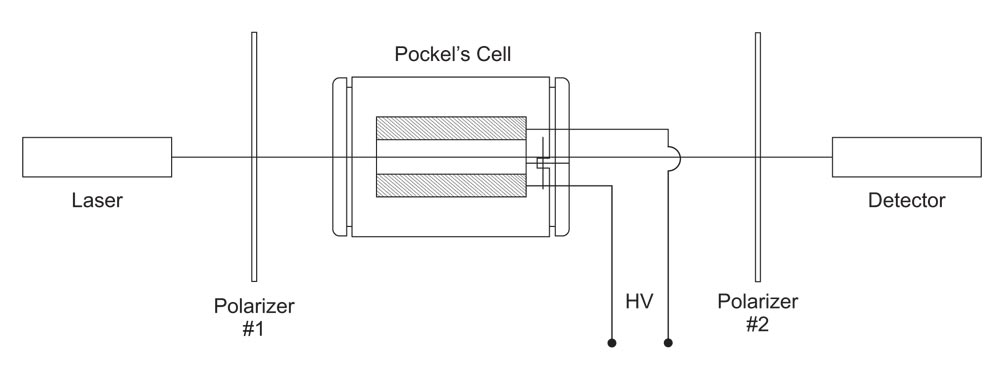HO-ED-P-05B Pockel Effect Apparatus
Couldn't load pickup availability
Pockel Effect Apparatus
Many crystals exhibit birefringence naturally. There are certain crystals which are not birefringent naturally but become birefringent by application of an electric field. This electro-optic phenomenon is called Pockel Effect.
Holmarc manufactures laboratory instrument for studying Pockel effect for Physics and engineering courses as a standard product (Model No: HO-ED-P-05B). In this instrument, a diode laser provides collimated light for the experiment. Lithium niobate is the electro-optic crystal used in the Pockel cell which is arranged between two polarizers. Carriages on an optical rail hold all modules including laser and detector on a straight-line path for the experiment. The spacing between the electrodes can be varied in order to use crystals of different dimensions.
The power supply module of the instrument can apply voltages up to 2 KV across the crystal. Experiment can be done by varying the applied voltage and recording the detector output reading at various voltage levels. The birefringence is increasing function of the applied voltage, so, transmission will be an oscillatory function of the applied voltage.
Experiment:
To plot the graph and study the birefringence with respect to applied voltage in an electro optic crystal (Lithium niobate)
The birefringence (Dn) is increasing function of the applied voltage, so that the transmission will be an oscillatory function of the applied voltage.
Dn = λ / П L sin-1 √P ( V ) / P ( V½ )
Dn = Birefringence
P (V½) = Intensity at Half wave voltage
P(V) = Intensity at applied voltage
L = Length of the crystal
λ = Wavelength of Light
Features:
| Enhanced and integrated design with drive voltage 0-2 KV |
| Precise measurements |
| Clear process observation and can study electro-optic effect |
| High sensitivity pin hole photo detector |
Drawings:

Graph:

Related Topics:
| Polarization |
| Pockel effect |
| Birefringence |
| Half Wave Voltage |
Scope of Delivery:
Instruction Manual






